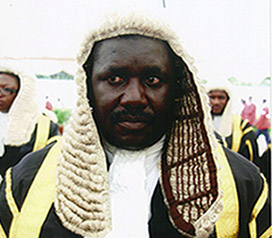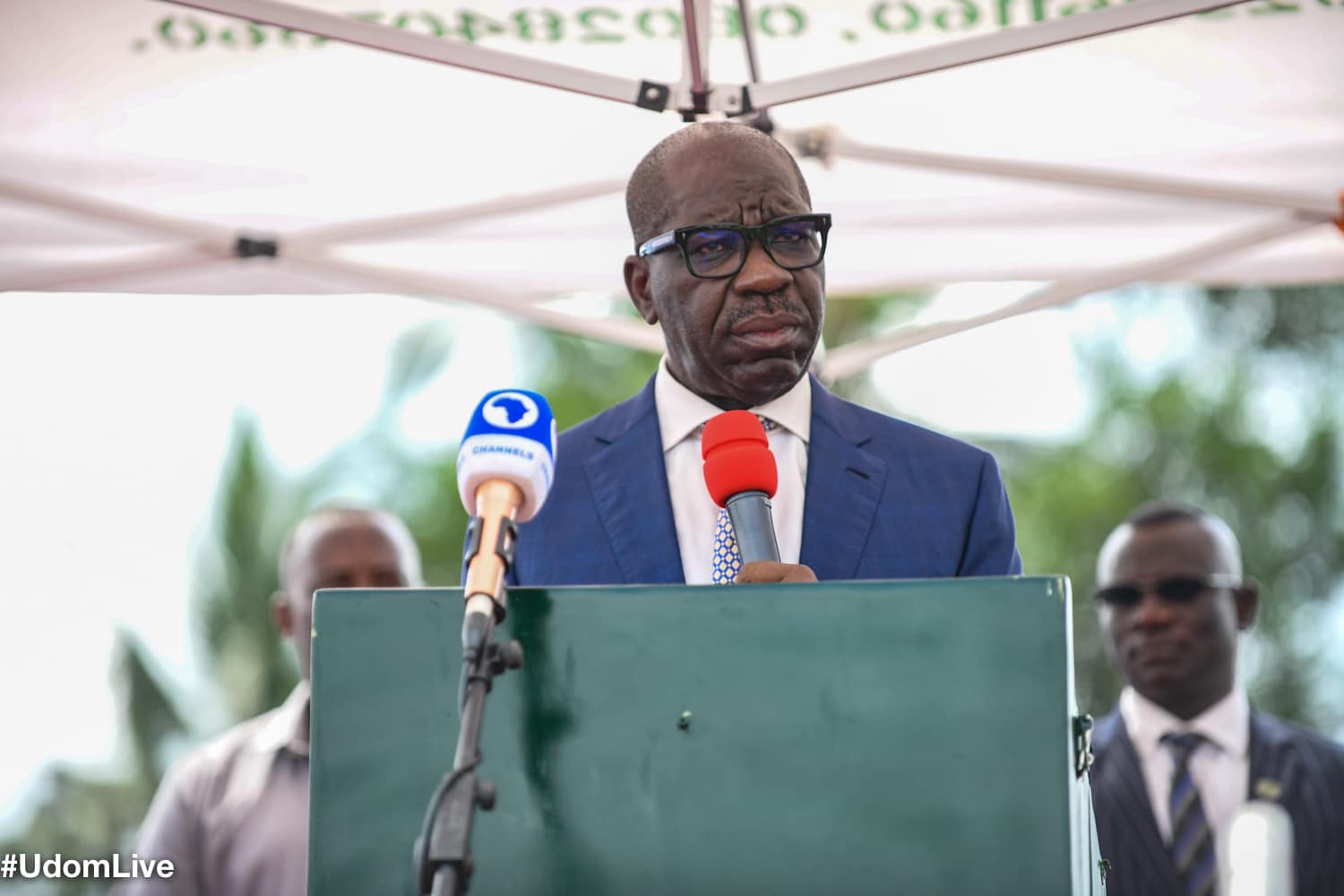In the month since May 23, 2024, when –during hours reserved by nature entirely for meetings of witches and wizards– he began sitting as Kingmaker for the Emirate of Kano, Abdullahi Liman, a senior judge of Nigeria’s Federal High Court, has handed down at least five rulings. Defying settled Supreme Court jurisprudence, he has asserted federal jurisdiction to decide for the people of Kano who their Emir should be; proceeded unperturbed even after being shown that the subject matter of his proposed decision-making had entered the docket of the Court of Appeal; and ordered the government of Kano State not to implement state law which he is incapable of invalidating.
The scandal about the course that Abdullahi Liman has chosen in his self-designated role as Kano’s federally-appointed Kingmaker is not in what he has done, however. It lies in what he has failed to do. The most significant thing, in this case, is the near certainty that there was no lawful case on the docket when the judge purported to remotely issue a night-time order on May 23, 2024, requiring the parties to “maintain status quo ante the passage and assent of the bill into law.” A more serious judicial scandal would be difficult to invent. It is, therefore, important to consider the facts that show that what has occurred in the court of Abdullahi Liman is judicial misconduct of the most spectacular kind.
Abdullahi Liman has been a lawyer for four decades and a judge for nearly a quarter of a century. Born February 11, 1959, he became a lawyer in 1984 and was in private legal practice in his home state, Nasarawa, and neighbouring Abuja, the Federal Capital Territory, until he was appointed a judge at 42 on July 27, 2000. He is presently the fourth senior-most judge of the Federal High Court. The week preceding his assumption of office as Kano’s sole Kingmaker, the National Judicial Council recommended Abdullahi Liman at the head of a list of 22 judges for elevation to the Court of Appeal. Whatever anyone may say of his work, judicial inexperience is not a charge that can be sustained against him.
The evidence of judicial malpractice in this case is compelling. Let’s begin from the beginning. On Thursday, June 20, 2024, Abdullahi Liman delivered a 22-page ruling precluding the substantive dispute before any opportunity to consider it. The ruling, which purports to nullify “every step taken” by the Kano State government under the Kano State Emirate Council (Repeal) Law assented to by the Governor on May 23, 2024, began as follows: “This Court on the 23rd of May, 2024, made an order via virtual proceedings, which was enrolled on the same date.” Notably, the judge failed to say when the case was filed. His anger and the entire basis of his orders, as Abdullahi Liman claimed in his ruling, was that the Government of Kano “defiantly went ahead to implement the law that is sought to be struck down.”
Advertisement
It is standard practice for judges in Nigeria to begin their judgments and rulings by clearly reciting details of when the case was filed that they are called upon to decide. As Kano’s Kingmaker, Abdullahi Liman cannot be bothered with such routines. For context, a claimant who wishes to file a case will usually take the relevant papers to the court registry. There, registry staff will assess the necessary fees, which the person filing the case must pay. Upon payment, a Remita electronic payment record is generated as proof of payment and of the amount paid, together with a timestamp of when the payment occurred.
The working hours of Court registries in Nigeria are well known. On May 23, 2024, the Governor of Kano State assented to the law at 5:10 pm or 17:10 hours. At that time of day, the registry of the Federal High Court in Kano had long closed for the week. So, no case could have been filed thereafter on that day to challenge the law. The only other possibility was that the filing happened before the Governor indicated his assent. If so, that filing could not have provided any basis for Abdullahi Liman’s peregrinations later that night in a judicial coven.
The only basis on which he could have issued the orders that he did on May 23, therefore, must be that the case was filed after the Governor’s assent. As a matter of law, that is impossible in the absence of a record of a prior decision by the Chief Judge of the Federal High Court extending the opening hours of the registry. As a practical matter, the staff of the Federal High Court in Kano do not have any record of any such filing. Off record, some people close to the bench suggest unconvincingly that a Remita record for the filing exists at the Federal High Court Registry in Lagos. If so, no one has found it. Lagos and Kano are not in different time zones and the rules governing office hours for the Federal High Court in Lagos are presumably not different from those applicable in Kano.
Advertisement
Three weeks after his first order, on June 13, Abdullahi Liman finally ruled to claim jurisdiction over Kano’s Emirate tussle. In doing so, he considered the Supreme Court’s 1988 decision concerning the deposition of the Emir of Muri but dismissed it as “distinguishable with the facts of the instant case and, therefore, inapplicable.” He failed to say how or why.
One week later, when he ruled to nullify everything done by the Kano State Government since his implausible order of May 23, Abdullahi Liman clarified the basis of the case as concerning “traditional and cultural rights which are vested rights and which are penumbral to …fundamental rights.” He alone could understand this verbiage because the fundamental rights guaranteed by Nigeria’s constitution do not include any “traditional and cultural” or “penumbral” rights, whatever those may mean.
There is no human right in Nigeria to be a Kingmaker or a King. At best, a claim for such could be made by way of judicial review, not as a fundamental rights claim. But to concede that would be to admit that Abdullahi Liman lacked jurisdiction over the matter. That was not his brief.
The scandal in this case goes beyond the fact that there is no filing record to foreground or precede the order of May 23, 2024, around which Abdullahi Liman affects judicial hyperventilation; or his invention of enforcement for rights that don’t exist in Nigeria’s constitution. According to his claim, the hearing that preceded his order of May 23 was remote or virtual. He also says he “enrolled” the order on the same day.
Advertisement
It is indeed the case that the Rules of Court in Nigeria were adapted in the aftermath of COVID-19 to allow for remote proceedings in certain cases. However, there has to be a valid case filed to begin with. It is also not clear from where Abdullahi Liman procured for himself the power to extend remote hearings to include remote enrolment of court orders.
Reminded that his order of May 23 was not served on the Government of Kano State until May 27, four days later, Abdullahi Liman cited a 2002 decision of the Court of Appeal saying that “anyone who is served with or becomes aware of a valid order of court should ensure that he obeys it in full.” The underlining here is his not mine.
Disregarding the word “valid”, however, he proceeded to claim on 20 June that the question was whether the Government of Kano State knew of the order before May 27. For proof, he said his order was everywhere on social media. This was rank duplicity from a man who, only the previous week, on 14 June, refused to credit evidence that the Court of Appeal had entered an appeal against his assertion of jurisdiction, preferring instead to hurtle with malice aforethought towards a pre-determined outcome. Once he had procured that on 20 June, he adjourned the case indefinitely.
A lawyer and a teacher, Odinkalu can be reached at [email protected]
Advertisement
Advertisement
Views expressed by contributors are strictly personal and not of TheCable.
Add a comment











